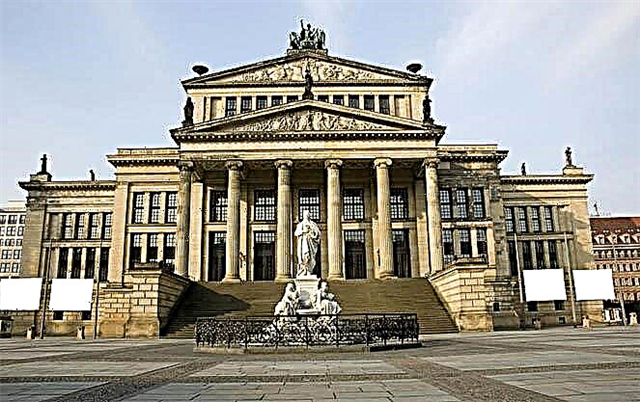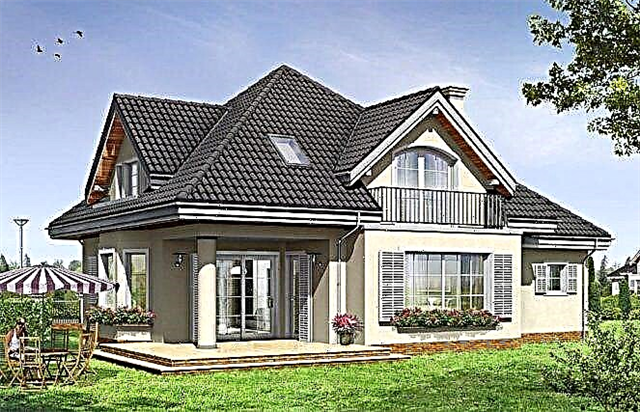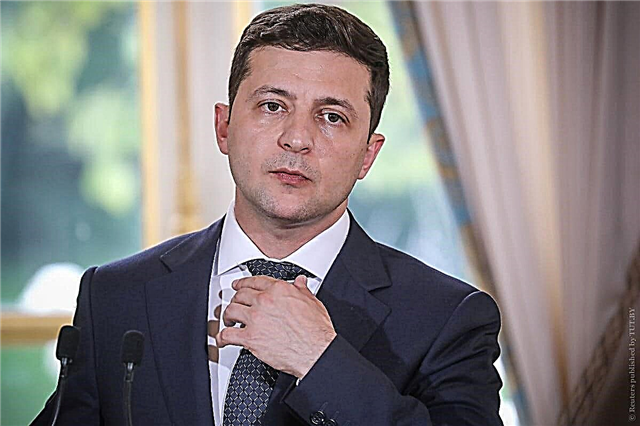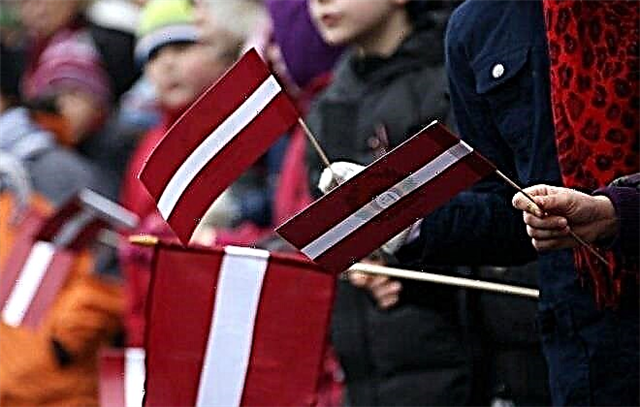Latvia is a country that is part of the European Union and lives according to European rules. This attracts migrants from Russia who want to actively engage in entrepreneurship and have freedom of movement within the Schengen area. But before planning a move and settling in this country, it is worth finding out how Russians live in Latvia.

Russians in Latvia
The percentage of Russians in Latvia is still the largest relative to the total population in comparison with all other former Soviet republics (including neighboring Lithuania and Estonia). Russians have lived on the territory of Latvia since the time of the Russian Empire, but they were few - about 7-8%.
The number of Russians and Russian speakers grew rapidly when Latvia became part of the Soviet Union. The main reason why there are many Russians in Latvia is the large flow of migrants from Russia and other union republics during the Soviet era.
In 1989, almost 34% of the republic's population were immigrants from Russia, but after the restoration of Latvia's independence, their number began to decline. Some of them left for the Russian Federation, and the rest are getting smaller due to natural attrition.
This process has been going especially quickly in recent years: if in 2021 demographic studies of the question of how many Russians live in Latvia gave a figure of 26.9%, then at the beginning of 2021 - 19.6%.
The Russian diaspora is concentrated mainly in large cities in the eastern part of the country.
How Russians are treated in Latvia
In the Russian media, one can often come across a mention that the attitude towards Russians in Latvia is extremely negative. But Russian-speaking residents of the country and tourists claim that these are political insinuations.
In fact, Latvians are quite neutral towards Russians. A conflict may arise due to the fact that the demeanor familiar to Russians is perceived by local residents as rude and defiant. But if you behave politely and respect local traditions and customs, no problems arise.
Travel lovers often ask how they treat Russian tourists in Latvia today. To this you can answer - on the whole, quite benevolently. Latvians easily distinguish Russian tourists from local Russian-speaking residents and perceive visitors from the Russian Federation just like any other foreigners who came to spend their money in Latvia.
Russian tourists can count on an attentive and respectful service - of course, if they themselves behave correctly.
When visiting Latvia, it should also be borne in mind that the time spent by the country within the Soviet Union is considered by the Latvians to be an occupation. Therefore, any mention of Soviet ideology, traditions and holidays, a manifestation of great-power arrogance will be unambiguously perceived negatively.
Features of adaptation of Russians in the country
 To obtain the right to live in Latvia, you need to have for this reason, provided by law: a work permit, business, relatives who are citizens or permanent residents of this state, real estate. Depending on the specific circumstances, the foreigner will be issued a residence permit or permanent residence.
To obtain the right to live in Latvia, you need to have for this reason, provided by law: a work permit, business, relatives who are citizens or permanent residents of this state, real estate. Depending on the specific circumstances, the foreigner will be issued a residence permit or permanent residence.
Most Russian migrants choose to live in the capital of the country. Statistical data on how many Russians are in Riga strongly refute propaganda intimidation.
Russians make up 40.2% of the city's population. In the city, you can buy newspapers, magazines and books in Russian, watch films with Russian subtitles and listen to Russian-language radio.
Many Russians in Riga hold prestigious positions or run successful businesses.
There are 43 Russian-teaching schools in Riga, 16 bilingual (Russian-Latvian) schools and 55 Latvian schools.
The country is in demand for skilled workers and workers in the service sector. For these vacancies, Latvian employers willingly hire migrants from the Russian Federation. Legally registered employees enjoy the same social rights as Latvian citizens. But salaries in the proposed fields of activity are not very high.
However, good specialists with higher education also have a chance to find a profitable job - provided that there are no applicants for this vacancy from Latvia or the European Union.
When planning life and work in the Latvian society, it should be taken into account that, according to Latvian laws, the use of the state language is mandatory in all public spheres (including in the workplace). Violations are subject to fines from 700 euros, and employees of state-owned enterprises may even be fired from their jobs. Therefore, if you want to settle in the country for a long time, you should plan an in-depth study of the Latvian language - even if you plan to live in a predominantly Russian-speaking environment.
In general, the way Russians live in Latvia today directly depends on the level of their integration into Latvian society. It is not necessary to count on the fact that it will be possible to obtain preferences for Russian speakers in the country. In 2021, under pressure from the Russian diaspora, a referendum was held, which considered granting the status of the state language to the Russian language, but 74.8% of voters voted against this.
In 2021, education reform began in the country, as a result of which, by 2020-2021, the entire educational process should be translated into Latvian.
Private schools teaching in EU languages will remain, but Russian-language schools will be closed. The number of public schools teaching in Russian will also decline sharply.
If in the past decades more than 90% of people of all ages spoke Russian in Latvia, then in 2021 it can be seen that the younger generation of Latvians practically does not know it, preferring English and other languages of the European Union. In all regions of the country, except for large cities and resorts, more than 75% of the population speaks Latvian. Therefore, Russians who plan to settle in the country should not expect that the Russian-speaking environment will remain in Latvia for a long time.
Russian diaspora
 Russians are the largest national minority in Latvia. Of the total number of ethnic Russians living in the country, 62.5% have Latvian citizenship, 29.2% have the status of so-called non-citizens (permanent residents without citizenship).
Russians are the largest national minority in Latvia. Of the total number of ethnic Russians living in the country, 62.5% have Latvian citizenship, 29.2% have the status of so-called non-citizens (permanent residents without citizenship).
A similar situation is associated with the fact that after the country gained independence, only those representatives of the Russian population who lived in Latvia before 1940, as well as their descendants, received Latvian citizenship. All the rest were issued a non-citizen ID. It gave the right to permanently reside in Latvia, but significantly limited political and many economic rights.
After the country's accession to the European Union, at the request of the EU Council, non-citizens received equal economic rights with citizens, but this did not affect political opportunities. They do not have the right to take part in municipal and state elections.
According to Latvian law, non-citizens of Russian origin are not covered by the Convention on the Protection of the Rights of National Minorities. The Russian language in the country has the status of a foreign language.
To obtain Latvian citizenship, Russians (non-citizens or migrants) must undergo a naturalization procedure: pass an exam in the Latvian language, knowledge of the Constitution and the history of the country, and also take an oath of allegiance to Latvia.
Today, Russians with Latvian citizenship make up 19.6% of the total population of the republic.
In 1996 the “Russian Society in Latvia” was organized. Its goal is to preserve and develop Russian culture in the country based on Christian values.
Russian citizens of the country have their own political party - the Russian Union of Latvia. In addition, many of them vote for the Social Democratic Party "Consent", whose leader is the mayor of Riga, Nil Ushakov. The country also has a public organization called the Headquarters for the Defense of Russian Schools.
Where is the best place to live for Russians in Latvia
The best places for settling Russian migrants are where there is work and a Russian-speaking environment. These are, first of all, big cities - Riga and Daugavpils.
- Representatives of creative professions will find a suitable cultural environment in Jurmala and Liepaja.
- The opportunity to live in a picturesque historical and natural environment is provided for those who want to work in the tourism business. There are many picturesque resort towns in Latvia - Sigulda (which is called "Vidzeme Switzerland"), Rezekne, Ventspils, Sabile, Saulkrasti, Cesis, Talsi. Many Russians conduct excursions around the country for guests from Russia, opening small travel companies or acting as private guides.
- Maritime professionals will love Ventspils with its rapidly developing infrastructure, large port and comfortable beach recreation areas.
Standard of living
Joining the European Union has had a significant impact on life in Latvia and the development of its economy. At present, the income level of the country's residents remains significantly lower than in the developed countries of the European Union, but higher than in Russia.
The average salary is 800-850 euros, but after deducting taxes, which in total amount to 23%, about 650 euros are handed out.
In different cities and regions, the level of income of citizens is different: for example, in Riga the average salary is about 1000 euros.
The minimum wage in 2021 is set at 430 euros. Unemployment is kept at about 6% (in large cities - up to 4%).
Prices in Latvia are on average higher than in the Russian Federation. For heating, residents of the country pay about 150 euros per month, renting a three-bedroom apartment costs about 500 euros per month.
Public transport costs 1-1.5 euros, gasoline - 1.7-2 euros per liter.
You can buy a one-room apartment in a large city for 50,000 euros, a 2-3-room apartment for 100,000-150,000 euros, buying a private house will cost 400,000 euros. At the same time, a significant part of the population (from 30 to 42% in different regions) is not satisfied with the level of their well-being.
Pension security
 There are a lot of pensioners in the Republic of Latvia. After the opening of the borders with the EU states, young people (both Latvians and representatives of other nationalities) prefer to leave for work in countries with higher salaries. Therefore, at present, the number of pensioners in the country has reached 21.8% and continues to grow.
There are a lot of pensioners in the Republic of Latvia. After the opening of the borders with the EU states, young people (both Latvians and representatives of other nationalities) prefer to leave for work in countries with higher salaries. Therefore, at present, the number of pensioners in the country has reached 21.8% and continues to grow.
At the beginning of 2021, the average pension in Latvia was 304.30 euros. The country has a three-tier solidary accumulative social insurance system: contributions can not only be paid to the state pension fund, but also accumulate in the form of targeted deposits in banks or in private funds.
To receive a pension from the state, you need to have at least 15 years of work experience, and from 2021 - at least 20 years. Since 2021, the country has begun a gradual increase in the retirement age, which should reach 65 by 2021.
In 2021, it will be possible to go on vacation at 63 years and 6 months (with an insurance experience of 15 years) or at 61 years and 6 months (with an experience of over 30 years).
In addition to pensions, the elderly and disabled receive various types of additional payments and benefits. Migrants from the Russian Federation should take into account that the work experience gained in Russia and in Latvia is not cumulative.
Conclusion
Before deciding to move to the Republic of Latvia, it is worth weighing all the pros and cons. The positives include:
- The ability to move freely around Europe.
- Ease of starting and running a business.
- A fairly widespread use of the Russian language in everyday life.
- Relatively low crime rate.
- Quiet, measured lifestyle.
- The proximity of the sea, an abundance of resorts and historical monuments.
Negative factors:
- Living standards and wages are much lower than in other EU countries.
- A limited number of high-paying jobs for Russians.
- High threshold of retirement age and difficulties with recalculation of Russian insurance experience.
In addition, you will need to learn Latvian well, which is quite difficult for Russians, and develop a habit of emotional restraint.











